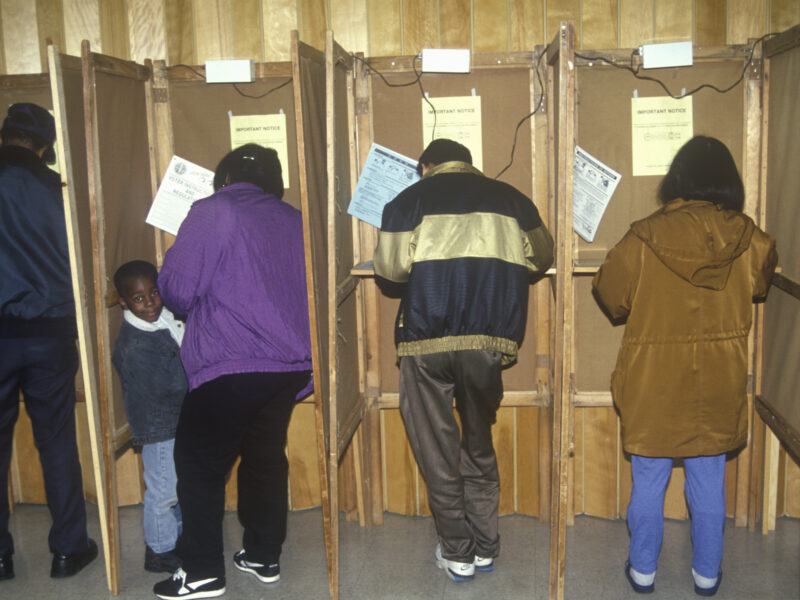So, the candidate of your choice lost in the 2016 presidential election? Judging from some reactions – e.g., see college campuses – one might think that the apocalypse is near, that no greater calamity has ever occurred. To see what history might say, let’s follow the fictitious Vespucci family through four generations. (Note: If some of the sequential synchronicity is a bit off… work with me here.)
Abel — Generation #1
Abel Vespucci, a white male*, is born in the 1890’s. His youth is a time of societal optimism. U.S. industry is booming and the country is emerging as a player on the world stage after the Spanish-American War. Then, as a young man, Abel’s sense of comfort is shattered as he finds himself headed to Europe to “make the world safe for democracy.” World War I was a ghastly, brutal affair featuring trench warfare and mustard gas. 10 Million soldiers die… on each side. Another 10 Million perished from disease, starvation, and assorted rebellious skirmishes. The United States, late-comers to the war, don’t fare as badly with “only” 50,000 deaths. (Heck, for perspective, there was one battle where the Brits lost 20,000… in a single day.) Beyond the heartbreak of some of the casualties, Abel’s family and friends felt the financial belt-tightening effects of the government’s national rationing strategy.
* [Had Abel been African-American, his outlook would have been far less rosy. On average, there were between 50 and 100 lynchings per year during this period. (Sad to say that this was an improvement over the 1890s when the annual average was well over 100.) This era also marked the second emergence of the Ku Klux Klan which utilized a strategy of “100% Americanism,” a campaign of terror especially focused on Jews and Catholics in addition to African-Americans.]
Baker – Generation #2
Abel comes home from WWI, marries, and has a son named Baker. After a bit of post-war boom, all hell breaks out. First, the family plunges into the nationwide despair of the Great Depression. Some people lost it all, transitioning from “riches to rags” overnight. On a separate (but definitely connected) front, those living in states that would come to be known in the 21st Century as “flyover,” see whole farms evaporate by the hundreds into a gigantic Dust Bowl. Meanwhile, if you were African-American, you don’t need to be told that the Jim Crow doctrine of “separate but equal” was heavy on the former and basically non-existent on the latter. Newspapers carried stories of a rising leader in “I-thought-we-were-done-with-that-place” Germany with some troubling ideas about a master race. On “a date which will live in infamy,” the Japanese bomb an unsuspecting U.S. military base in Hawaii. Baker enlists and wonders, Am I headed to Japan or Europe? A few years later, in June of 1944, he storms the beaches of Normandy, kicking off a 6-week battle that left 425,000 Allied and German troops dead, injured, or missing. He survives and returns home. A half-century later, a prominent news reporter writes a book about Baker and his contemporaries. He titles it The Greatest Generation.
Charlie – Generation #3
Baker marries and has a son named Charlie. With Little League baseball, a Roy Rogers lunch box, and black & white (actually, very little of the former and a whole lot of the latter) TV, Charlie is loving life. And then an episode of “Leave It to Beaver” is rudely interrupted with a shocking piece of news: The President has just been shot and killed in broad daylight! As time marches on, seemingly every other TV program has a “We interrupt this program” message. There are more assassinations. There are terrible racial clashes: dogs and firehoses being turned on African-American protestors, white civil rights volunteers disappearing. (There is also an outrageously energetic and talented singer who seems to rise above it all with a song defiantly titled “Say It Loud, I’m Black and I’m Proud!”)
There are daily reports about a war in Southeast Asia of undetermined origin. With no Pearl Harbor and no Hitler provoking our placement of troops there, Charlie wonders, Why are we even in Vietnam anyway? As a high school senior, Charlie dutifully registers for the draft. He draws a low (i.e., bad) draft number. He burns his draft card on the Boston Common. He has the grades and the money to get a college deferment. He knows guys who are less fortunate. They go over there. Some don’t come back. Some of the ones who do come back don’t seem quite right. To get away from it all, Charlie goes to a three-day music festival in upstate New York. To the sounds of an African-American guitarist’s highly unconventional rendition of “The Star Spangled Banner”, his eyes lock with those of Clara.
Delilah – Generation #4
Charlie and Clara move in together, living many years of unwedded bliss. Late in the game they adopt a baby daughter named Delilah. They home school her. They purchase a dreaded minivan which Clara uses to transport Delilah and her friends to soccer games. Clara lets them crank up the radio when #1 hit song “Bootylicious” by Destiny’s Child comes over the air waves. Then the announcer comes over the radio and Charlie’s whole assassination concept is magnified a hundredfold by the unthinkable: a hijacker (a word that neither Abel nor Baker would even comprehend) has intentionally steered a jet full of passengers into the side of the World Trade Center. They get home. Clara slams on the brakes, bounds into the house, turns on CNN, and watches as… a second plane flies into the second tower. She stays with the broadcast until both towers crumble to the ground. Clara and Delilah sit in silence and wonder: So, what happens now?
Fifteen years later, against all odds and/or predictions and without a majority of the popular vote, Donald Trump is elected President of the United States. By virtue of that fact, debates about the suitability of the electoral college notwithstanding, a lot of people are happy with that. By virtue of the irony inherent in the fact that his opponent won the popular vote, even more people are unhappy. On the day after, the news media featured several stories of distraught students and teachers at some of the nation’s most elite and respected institutions of higher learning. Some communicated a picture of overly entitled young adults being coddled by administrators gone soft with their expectations. I don’t know enough to comment definitively on that, but I will conclude with three brief points:
1) The current college aged generation’s share of tough and trying times is no tougher than the previous four depicted.
2) Just as Abel, Baker, Charlie, and Delilah dug down and found a way through, this generation can (and must) dig down and do likewise.
3) Returning to our colleges: Dial down your academic and intellectual factors and dial up the resilience and character factors. Having been engaged in a running feud with various college admissions departments for forty years regarding this topic, I propose an experiment for the Ivy League schools, specifically. (Oh, all right, the Stanfords, Rices, Dukes, Vanderbilts, and U. Chicagos are more than welcome to join in.) Since your rejection letters claim annually that you deny thousands of applicants who could do the work, simply set aside 100 slots for applicants in that category and admit those who have demonstrated the most persistence and resilience. (And before you say that’s too subjective… For the past half-century you have been perfectly willing to establish and act upon a working definition of intelligence, one that is both decidedly narrow and “unmultiple.”) Don’t even tell those 100 the reason they have been admitted. Just keep an eye on them and see what they do, both at school and beyond. I’m betting you’ll like the outcome. I’m also betting that if you demand, really demand, those qualities, this generation, like those before will deliver on them.
And I’m also betting that American humorist Kin Hubbard (1868-1930) will turn out to be right: “I’ll say this for adversity: people seem to be able to stand it. And that’s more than I can say for prosperity.”
Onward, Malcolm Gauld


